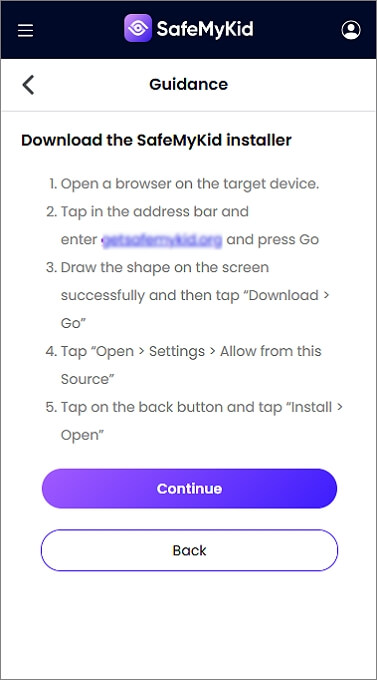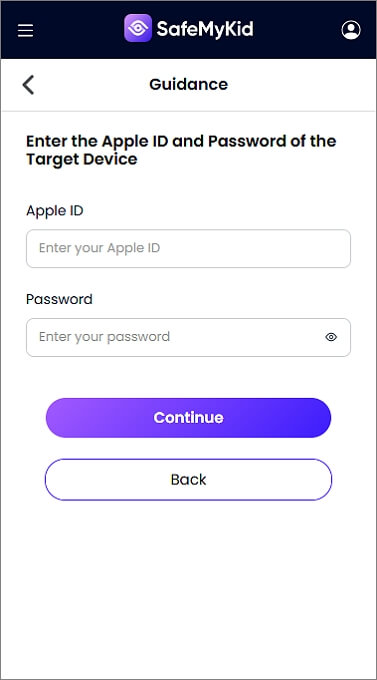What Are The 8 Forms of Cheating? Spot Them Early

Cheating isn't just about sleeping with someone else, it runs much deeper than that. It can be emotional, digital, financial, or even subtle behaviors that cross the line of trust.
Understanding the different forms of cheating helps you recognize red flags early. In this article, we'll break them all down and show you how to catch them before it's too late.

What Are The Forms of Cheating?
There's no one-size-fits-all answer to "What are the forms of cheating?". In today's world, betrayal takes many shapes. Below are 8 different forms of cheating in a relationship, based on real examples and expert insights.
1. Physical Cheating

Physical intimacy with someone outside the relationship is the most commonly recognized form of betrayal. Whether it's a one-night stand, a brief encounter, or a prolonged affair, this is what most people picture when they hear "forms of cheating in marriage".
The emotional damage caused by physical cheating often runs deep, making it incredibly difficult to rebuild trust and heal the relationship.
This form of cheating involves breaking the physical boundaries set by the couple and usually leads to a significant breach of trust and emotional pain.
2. Emotional Cheating

You don't have to be physically involved with someone to betray your partner. Emotional cheating involves sharing intimate thoughts, feelings, and a deep connection with someone outside the relationship.
It often starts innocently, through friendship or support but can develop into a significant emotional bond that rivals or even surpasses the one with the partner.
Emotional cheating can be just as hurtful as physical affairs because it involves a transfer of love, trust, and attention away from the primary relationship. This form is almost always considered one of the major types of cheating.
3. Cyber or Online Cheating

In today's digital world, new forms of cheating have emerged that don't require physical presence. Cyber cheating involves flirting through texts or chat apps, maintaining secret dating profiles, or sending suggestive photos and videos.
These digital interactions may initially seem harmless or playful but can lead to severe breaches of trust.
Because of the ease of communication and the anonymity online, people may engage in more frequent or intense emotional or sexual exchanges, which are considered forms of cheating in a relationship.
4. Micro-Cheating

Micro-cheating includes small, subtle actions that might not seem like cheating on their own but can build up over time to seriously damage a relationship.
Examples include liking a flirty social media post, messaging an ex "just to say hi", hiding online activity or engaging in private conversations that exclude a partner.
These minor behaviors often fly under the radar but can create emotional distance, secrecy, and feelings of betrayal. Over time, micro-cheating erodes trust and intimacy, making it a dangerous and often overlooked form of infidelity.
5. Financial Cheating

Money can be as much a source of betrayal as emotional or physical infidelity. Financial cheating involves hiding spending habits, keeping secret bank accounts, or sending money to someone outside the relationship, sometimes even to a romantic interest.
It's not just about the money itself, but the dishonesty and secrecy that damage the foundation of trust. Financial cheating can cause as much harm as other forms of cheating because it undermines the transparency and partnership expected in a committed relationship.
6. Texting and Sexting

Sexting is one of the more modern forms of cheating, made possible by smartphones and messaging apps.
When partners exchange secret, intimate, or sexually explicit messages, photos, or videos with someone outside the relationship, it qualifies as cheating, even without any physical contact.
This form of cheating can cause significant emotional pain and mistrust, just like physical infidelity.
7. Fantasy Cheating

Fantasy cheating involves mentally or emotionally engaging with someone else during intimate moments or daydreaming about being with another person.
While it doesn't involve actual physical or emotional interaction, many consider it a form of betrayal because it shifts attention and desire away from the partner.
Constantly imagining others or comparing your partner to someone else can create emotional distance and dissatisfaction, which may impact the relationship's health over time. Fantasy cheating is often one of the less visible but impactful types of cheating.
8. Cheating Through Technology

Technology has transformed how people cheat, introducing new methods that were unimaginable before smartphones and apps.
From disappearing messages in apps like Snapchat, and secret messaging apps, to dual-apps that hide contacts and conversations, digital cheating can be incredibly discreet. The number of forms of cheating keeps growing as technology evolves.
Tools like SafeMyKid help uncover these digital betrayals, giving partners a way to monitor and detect cheating, no matter how subtle or technologically advanced the methods may be.
SafeMyKid: The Best Way to Catch a Cheater

When it comes to discovering the forms of cheating in a relationship, you need a reliable and discreet way to track suspicious behavior. That's where SafeMyKid comes in.
SafeMyKid is a powerful monitoring app that lets you see calls, messages, locations, and social media activity, perfect for those who suspect their partner may be cheating.
Whether you're worried about forms of micro-cheating, emotional cheating, or even full-blown affairs, SafeMyKid gives you the insight you need.
Key Features of SafeMyKid for Detecting Cheating
When it comes to uncovering hidden signs of cheating, SafeMyKid offers a robust set of features designed to give you full visibility and peace of mind without alerting the target device user.
Key features of SafeMyKid for detecting cheating include:
- View WhatsApp, Facebook, Instagram, and Snapchat Chats: Monitor conversations and shared media across popular social platforms to spot suspicious messages, deleted chats, or hidden interactions that could indicate infidelity.
- Track Real-Time GPS Location: Keep an eye on the device's exact location at any time. Geofencing alerts notify you if the phone enters or leaves specific areas, helping you detect secret meetings or unapproved visits.
- Monitor Browsing History and Call Logs: Review all websites visited and incoming/outgoing call details to uncover potential hidden contacts or inappropriate communication patterns.
- Works Invisibly in the Background: SafeMyKid runs discreetly without affecting phone performance or alerting the user, ensuring continuous and undetected monitoring.
- Access to Deleted Messages and Media: Recover deleted texts and photos to catch attempts at covering up suspicious activity.
- Comprehensive Reports and Alerts: Receive easy-to-understand reports and instant notifications for any flagged behavior, helping you respond quickly if cheating signs appear.
These features combine to provide a thorough and discreet way to detect cheating, empowering you with information that can either confirm your suspicions or bring peace of mind.
How to Use SafeMyKid to Detect Cheating
If you suspect your partner may be cheating, SafeMyKid provides a straightforward and discreet way to gather the information you need. Follow these simple steps to start monitoring and uncover the truth with ease.
How to Detect Forms of Cheating on Android
Step 1.Sign up
Create your account on SafeMyKid's website to get started.

Step 2.Install SafeMyKid on The Target Android Device
Download and set up the app quickly and securely.

Step 3.Discover The Forms of Cheating on Android
Access all monitored data from your personal dashboard anytime, anywhere to discover the forms of cheating.

How to Detect Forms of Cheating on iPhone
Step 1.Sign up
Register your account with SafeMyKid.

Step 2.Enter iCloud Credentials for The Target Device
Connect via iCloud without needing to physically access the phone.

Step 3.Detect The Forms of Cheating on iPhone
Monitor messages, social apps, location, and more directly from your dashboard to discover the forms of cheating.

SafeMyKid doesn't require jailbreaking or rooting, making it a safer and more reliable choice. Many other spying tools either lack important features or demand risky device modifications, putting your security and privacy at risk.
FAQs about Different Forms of Cheating
Now that we've explored the different forms of cheating in a relationship and how to spot them, you might still have some lingering questions.
Below are answers to common FAQs to help you better understand the boundaries, behaviors, and modern challenges surrounding all forms of cheating today.
1. Are there legal consequences for different forms of cheating in some countries?
Yes, in certain countries, forms of cheating in a marriage particularly adultery, can lead to legal consequences such as divorce settlements, custody issues, or even criminal charges.
While not all forms of cheating are punishable by law, emotional or financial betrayal can still impact legal proceedings in civil court.
2. Is sexting considered one of the forms of cheating on someone?
Absolutely. Sexting, especially when done in secrecy outside a relationship, is considered one of the forms of cheating on someone, as it involves sexual expression and emotional intimacy with another person. It crosses boundaries and breaks trust, even if no physical contact occurs.
3. How do forms of cheating in long-distance relationships differ?
In long-distance relationships, forms of cheating often shift more toward digital communication such as emotional affairs, secret video calls, or excessive online flirting. Physical cheating might be less frequent, but emotional dishonesty can be just as harmful.
4. What's the difference between micro-cheating and emotional cheating?
Forms of micro-cheating are subtle behaviors like liking flirty posts or hiding conversations, while forms of emotional cheating involve deeper emotional bonding, secret connections, or seeking emotional support from someone else outside the relationship.
5. Can hiding your financial habits be one of the forms of cheating?
Yes. Financial infidelity such as opening secret bank accounts, hiding debts, or spending money behind your partner's back is a lesser-known but serious form of cheating in relationships that can create lasting mistrust and harm.
6. Is it possible to cheat on someone without realizing it?
It's more common than people think. Some individuals unknowingly engage in different forms of cheating like deep emotional sharing or constantly texting an ex because they don't recognize these actions as betrayals. Communication is key to setting clear relationship boundaries.
7. How do forms of cheating in modern dating apps evolve?
Dating apps have introduced new forms of cheating, such as swiping "just for fun," chatting with matches while in a committed relationship, or keeping a hidden profile. These modern behaviors blur lines and require couples to define what's acceptable in digital spaces.
Conclusion
Cheating comes in many shapes and sizes, and it's not always as obvious as people think. Understanding the many forms of cheating is essential for building trust.
Thankfully, tools like SafeMyKid give you the ability to uncover the truth, monitor suspicious activity discreetly, and make informed decisions about your relationship moving forward.


